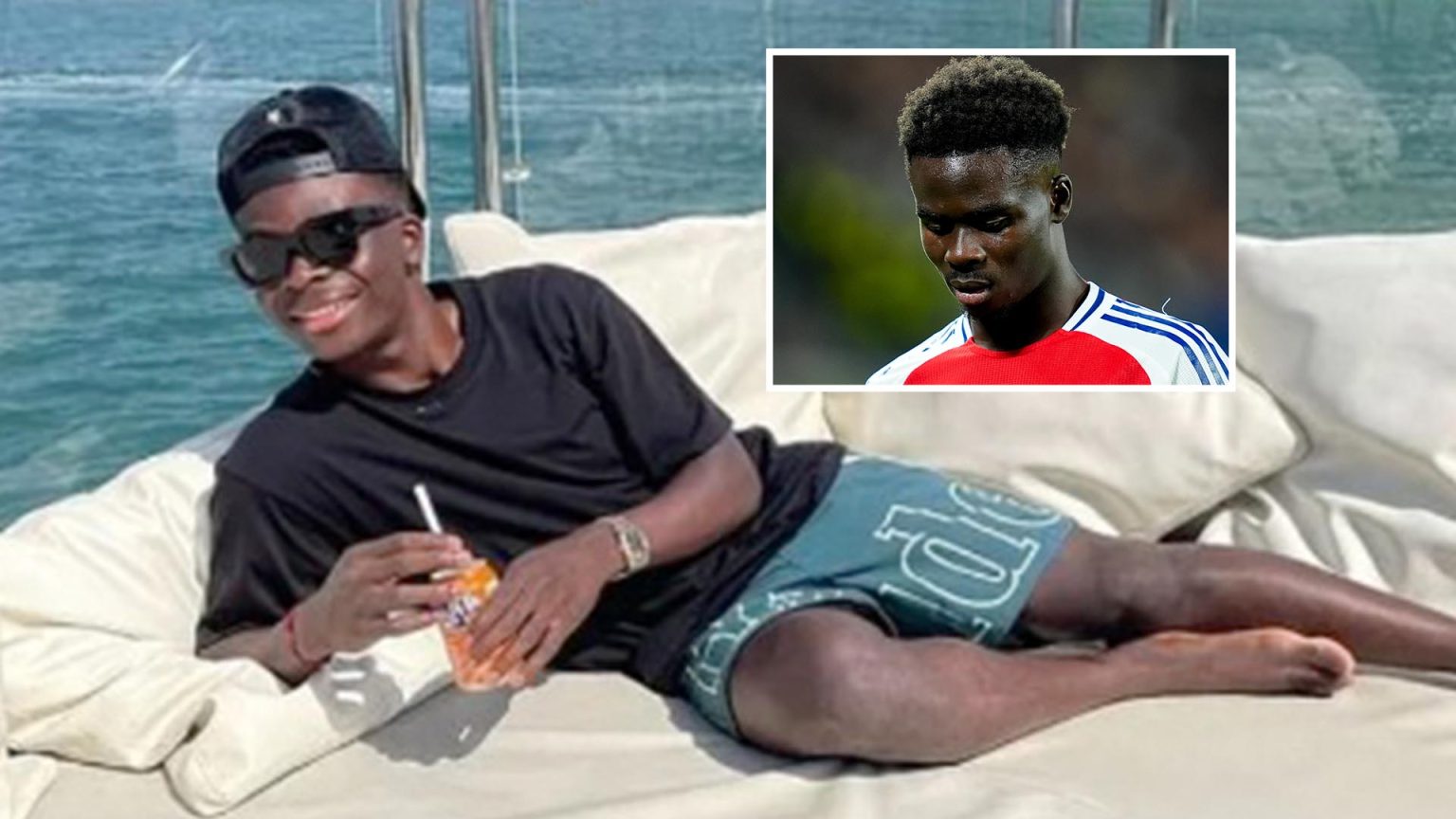Bukayo Saka, Arsenal’s star winger, is diligently rehabilitating from hamstring surgery, a procedure he underwent just before Christmas. While dedicated to his recovery, Saka has remained a constant presence at the club’s London Colney training ground and has even attended home games to support his teammates. His commitment is commendable, but manager Mikel Arteta has recognized the importance of a mental break and has urged Saka to take a holiday to recharge both physically and mentally. This break, Arteta believes, will be crucial for Saka’s overall well-being and will ultimately contribute to a more effective rehabilitation process. Arteta emphasized that the time off will allow Saka to incorporate other aspects of his recovery program, making it even more beneficial.
Arteta’s concern for Saka’s well-being stems from the player’s demanding schedule. Saka played in nearly every game for Arsenal last season, both domestically and internationally, including a prominent role in England’s run to the Euro 2020 final. This season, he has maintained a similar workload, starting the majority of Arsenal’s Premier League and Champions League matches. This continuous high-level performance has understandably taken a toll, and Arteta recognizes the need for Saka to step back and recuperate. The manager feels a short break, spent with loved ones or even alone, is essential for Saka to disconnect from the pressures of professional football and return refreshed.
Arteta’s encouragement for Saka to take a holiday underscores the growing awareness within football of the importance of mental health alongside physical recovery. The mental strain of a long and demanding season, coupled with the isolation that comes with injury rehabilitation, can be significant. By urging Saka to take a break, Arteta is not only prioritizing the player’s physical recovery but also recognizing the need to address the psychological impact of the injury and time away from the pitch. This holistic approach to player care reflects a shift in football culture, where mental well-being is increasingly recognized as vital for optimal performance.
Saka’s absence has highlighted his importance to the Arsenal team. Since his injury in late December, the Gunners have struggled to replicate his attacking output, experimenting with various players on the right wing without finding a consistent solution. The team’s form has dipped, with dropped points in the league, elimination from the FA Cup, and a difficult first leg in the Carabao Cup semi-final. This downturn has intensified the pressure on Saka to return quickly and effectively, a pressure that Arteta is undoubtedly keen to mitigate through ensuring Saka has adequate rest and recovery time.
The manager’s hope is that Saka will return to action in early March, potentially in time for crucial Premier League clashes against Manchester United and Chelsea. However, the ultimate goal is not just a swift return but a sustainable one. Arteta emphasizes the psychological aspect of rehabilitation, acknowledging the difficulty of being sidelined and the disruption to routine. He believes a break will allow Saka to address these challenges, reconnect with his personal life, and return with a renewed focus and motivation. This mindful approach to recovery highlights Arteta’s understanding of the complex interplay between physical and mental well-being in elite sport.
The focus now turns to finding suitable cover for Saka during his absence. Arsenal are actively seeking reinforcements in the January transfer window, acknowledging the need for additional attacking options. While a new signing may alleviate some of the burden on the team, Saka’s return remains crucial for Arsenal’s ambitions. His impact on the team is undeniable, and his presence will be essential if Arsenal are to maintain their challenge for the Premier League title, a race that remains tight despite recent setbacks. Arteta’s insistence on Saka’s holiday underscores the long-term vision for the player and the team, prioritizing sustainable performance over short-term gains.


